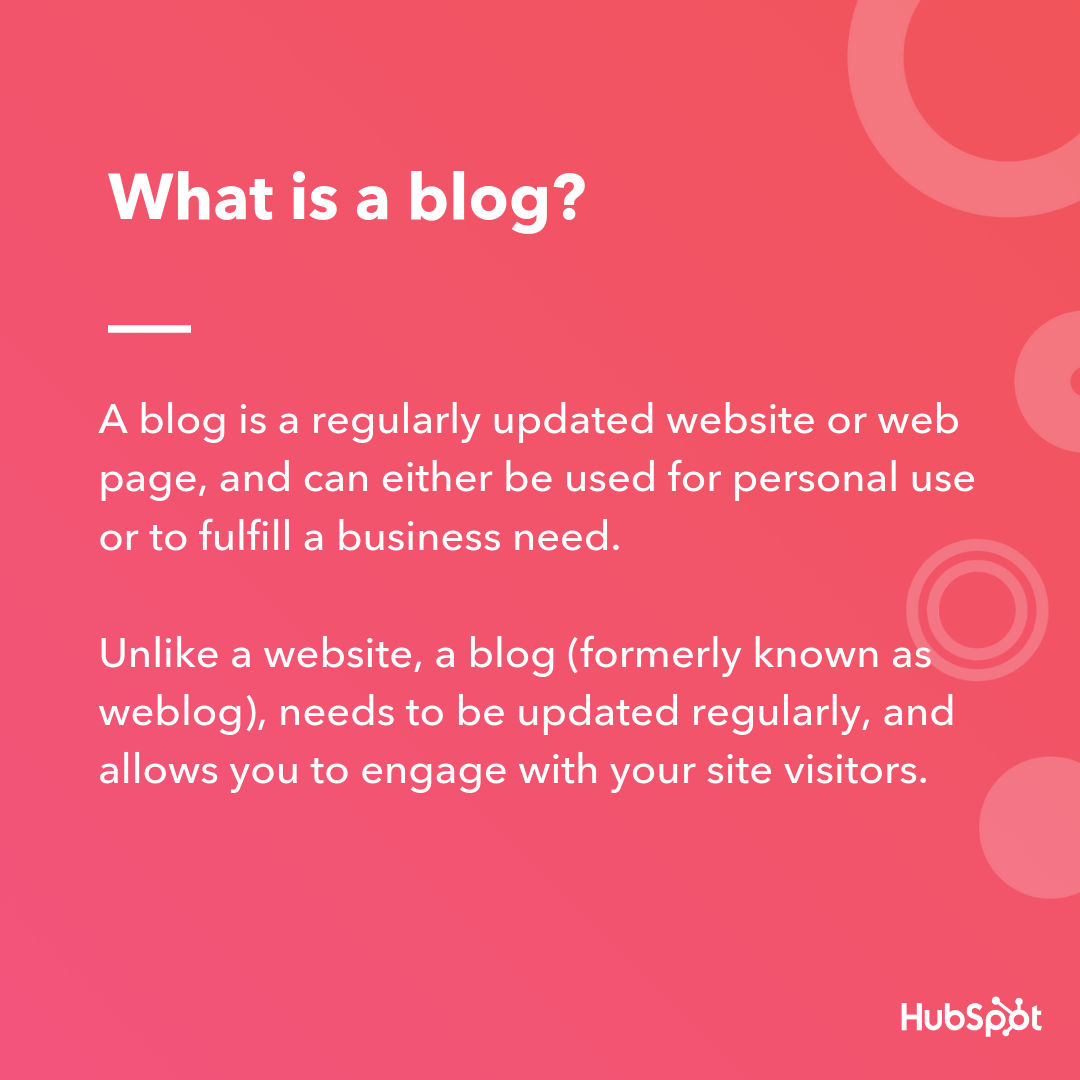When you hear the word “blog”, what do you think of?
Maybe your mind goes to stories about travel, yoga, and exciting new restaurants to try.
What if I told you that, although these thoughts may be valid, other terms and phrases should be coming to mind? These include conversions, a boost in revenue, calls to action, inbound marketing, and improving customer relationships.
Blogs are powerful business tools. They improve conversion rate, foster relationships between your business and audience members and customers, boost revenue, promote brand awareness, increase your ranking on search engines, and positively impact your bottom line.
In this guide, we’ll review the different types of blogs there are and examples of each. We’ve also added a “Niche Industries” section, because there’s a blog for everything out there, including your industry. These will give you a better understanding of the various ways your business can write and publish content to help you achieve the benefits we listed above … and more.
Start a Blog with HubSpot’s Free Blog Maker
- Manufactur-ing Blogs
- Healthcare Blogs
- Ecommerce Blogs
- Technology Blogs
- Education and Nonprofit Blogs
- Digital Agency Blogs
Before we dive in, what is a blog?

Any type of business — whether it’s focused on ecommerce, retail, technology, or services — can benefit from publishing and maintaining a blog. By writing about topics that resonate with your audience and incorporating optimization tactics your business can experience a variety of benefits that result from having a blog.
Speaking of the benefits of a blog, we mentioned some of them above. Let’s dive into them in more detail. This section will help you answer a commonly asked question around the topic: why blog?
Benefits of Blogging
There are a variety of reasons why your business should blog. These all explain why it’s a beneficial time investment and addition to your business’s branding, marketing, and sales efforts.
- Rank on search engines and build authority online so your content and website appear first on the search engine results page, or SERP, when people look up specific terms and keywords. Human Marketing does this well with their mix of blogs and pillar pages (or topic clusters).
- Drive organic traffic to your website, social media profiles, and other forms of content in a way that feels natural and doesn’t interrupt your audience. Cloud Elements is an example of a company that has seen an increase in organic traffic due to their blog.
- Educate your leads and customers by helping them stay informed on industry trends and development, and educated about your products, services, and how you can solve their challenges.
- Contribute to your inbound marketing tactics so you can avoid having your content feel pushy and “salesy”. Grand Rapids Chair is an example of a company that uses their blog to improve their inbound growth.
- Convert leads and prospects into customers by including helpful and educational information in your blogs so they can understand why your product or service is right for them.
- Become known as an expert in the industry and stand out against your competition by writing about the various topics your business and product line is known for or relates to. These may include content marketing, public relations, or software for small businesses. 3PL Central is an example of a company who has become known as an industry expert and separates themselves from the competition thanks to their blog.
- Foster a sense of community so your audience members know there are hundreds (or thousands, depending on the size of your blog) of other people equally as interested in your information and content.
- Engage audience members and customers so they keep coming back to read your content every day (or as often as you publish your blog) and potentially check out your products or services.
- Promote your business and products or services by writing about their benefits and linking to information where your readers can learn more … and convert into customers.
- Boost revenue with calls-to-action (CTAs) and links to your website pages where your audience can learn about and purchase your products or sign up for your services.
- Support all of your marketing and greater business initiatives by staying consistent with your branding and tone throughout all of your blogs.
Now that you have a basic understanding of what blogging is and how it can benefit your business, let’s dive into some examples. You can these examples for inspiration and as a point of reference as you start your business’s blog.


